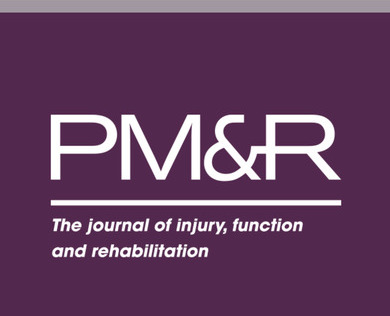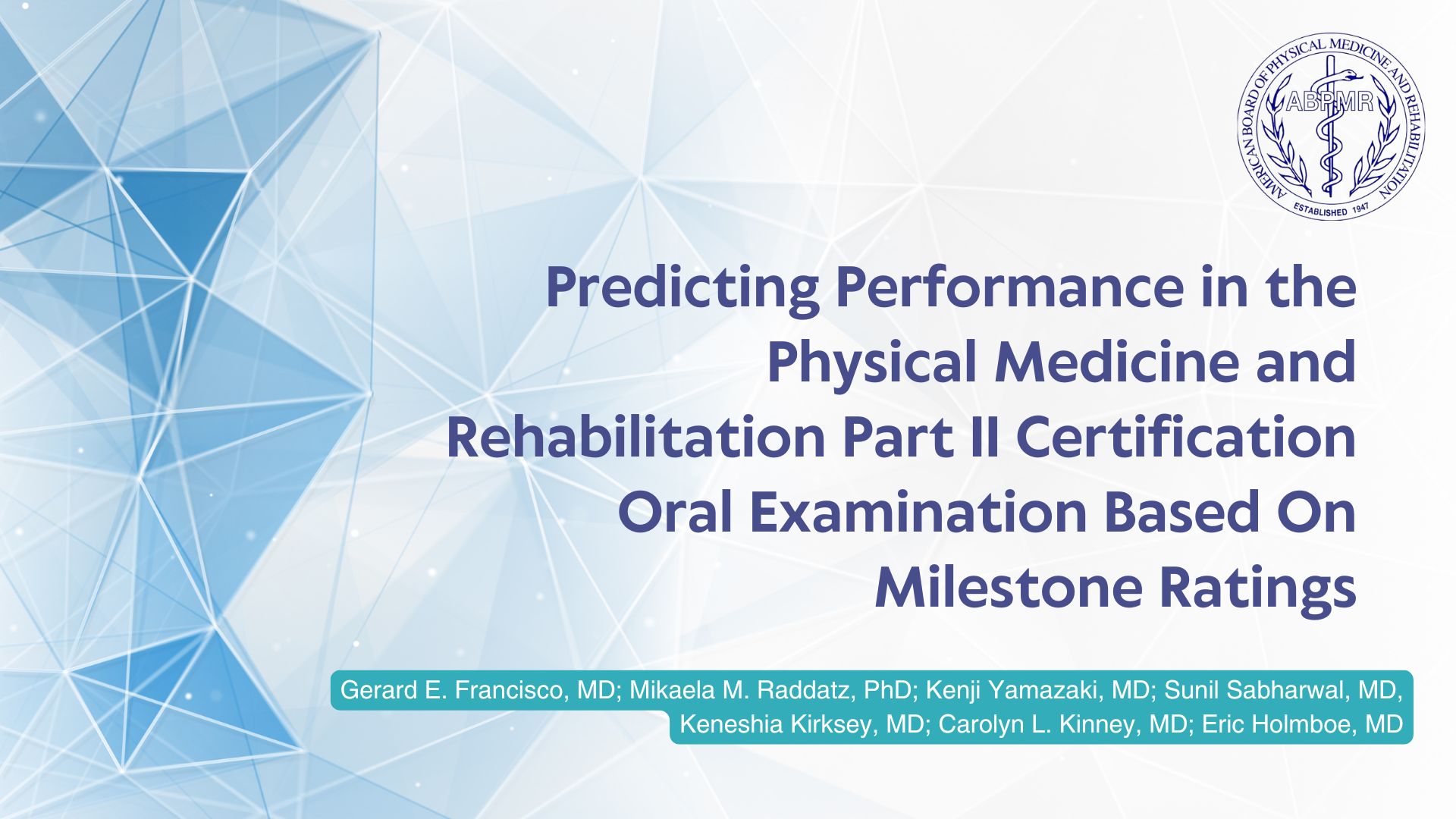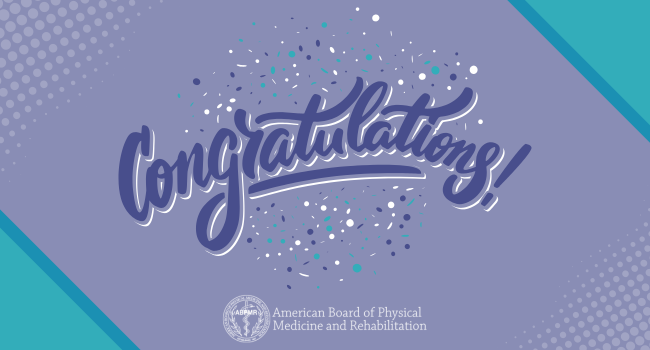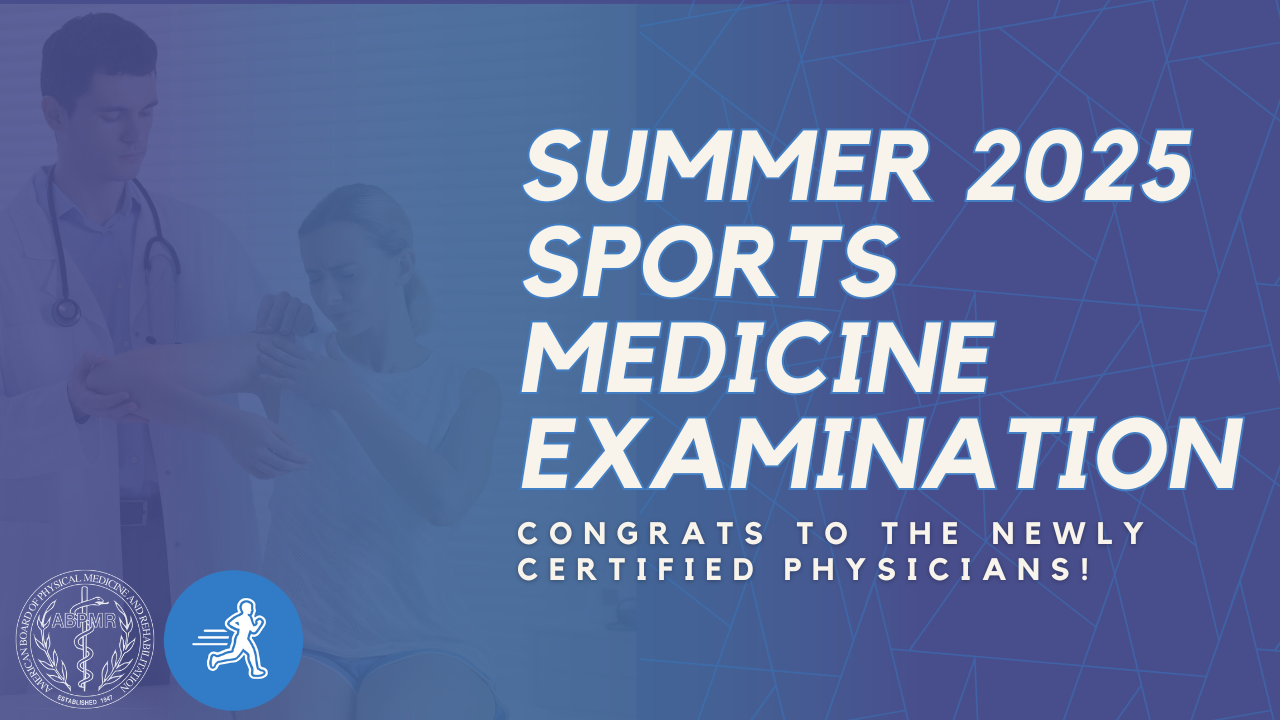Initial Certification Research
ABPMR Research on Candidate Performance

Over the last few months, members of the American Board of Physical Medicine and Rehabilitation's Research Committee have published three peer-reviewed articles in the PM&R Journal and the American Journal of PM&R. Each article examines a different aspect of candidate performance on ABPMR examinations and the results yield some good advice for test-takers.
"The Research Committee was developed in order to provide valuable information about ABPMR examinations and operations," says Mikaela Raddatz, PhD, psychometrician at the ABPMR and one of the authors of all three studies. "One of our goals is to increase transparency by completing research regarding certification and maintenance of certification which will be beneficial for residents, diplomates, and the public."
ABPMR candidates can also benefit from the research findings which show that the Self-Assessment Exam for Residents (SAE-R) can be a good measure of knowledge, and that if you don't pass the exam a couple years in a row, you might want to rethink your studying strategy.
Each article title below is linked to the citation on PubMed. Click through to read more of the abstract and to download the full articles.
"Does the Physical Medicine and Rehabilitation Self-Assessment Examination for Residents Predict the Chances of Passing the Part 1 Board Certification Examination?" Massagli TL, Gittler MS, Raddatz MM, Robinson LR. PMR. 2016 Jun 16. pii: S1934-1482(16)30191-5.
This study looked at the correlation between raw scores on the SAE-R and scaled scores on the ABPMR Part 1 Examination. The conclusion was that SAE-R scores provide some information on the likelihood of passing ABPMR Part I, meaning the SAE-R can be used as a tool to give residents an idea of their level of knowledge.
How Do Candidates Perform When Repeating the American Board of Physical Medicine and Rehabilitation Certification Examinations? Robinson LR, Sabharwal S, Driscoll S, Raddatz M, Chiodo AE. Am J Phys Med Rehabil. 2016;95(10):718-724.
This study analyzed candidate performance on retake attempts of the Part I Examination after failing the exam. The findings showed that the greater the number of attempts, the greater the pass rate declines. The study's authors conclude that candidates may wish to rethink their study strategy if they fail more than once.
Does Delay in Taking the American Board of Physical Medicine and Rehabilitation Certification Examinations Affect Passing Rates? Robinson LR, Driscoll S, Sabharwal S, Raddatz M, Chiodo AE. Am J Phys Med Rehabil. 2016;95(10):725-729.
This study examined whether a delay in taking the Part I or Part II Examinations had an effect on the score and pass rate, as well as looking at whether a post-residency fellowship has an effect on Part II Examination performance. The findings showed that passing rates declined each year that a candidate delayed the examination beyond initial eligibility. It also showed that candidates who had completed a fellowship scored higher on the Part II Examination than their counterparts. The takeaway is that residents and fellows should take the certification examinations as soon after their training as possible.



